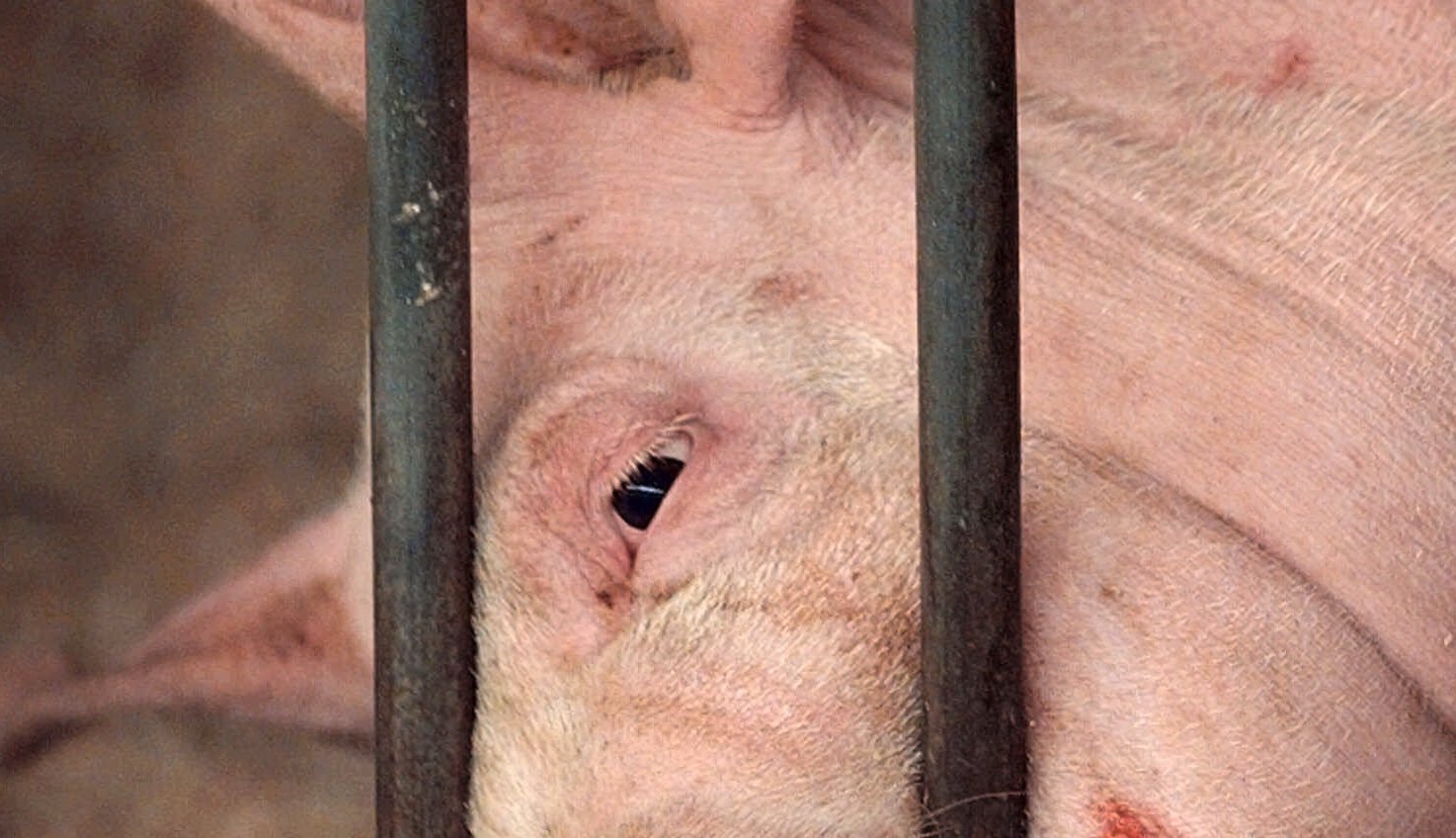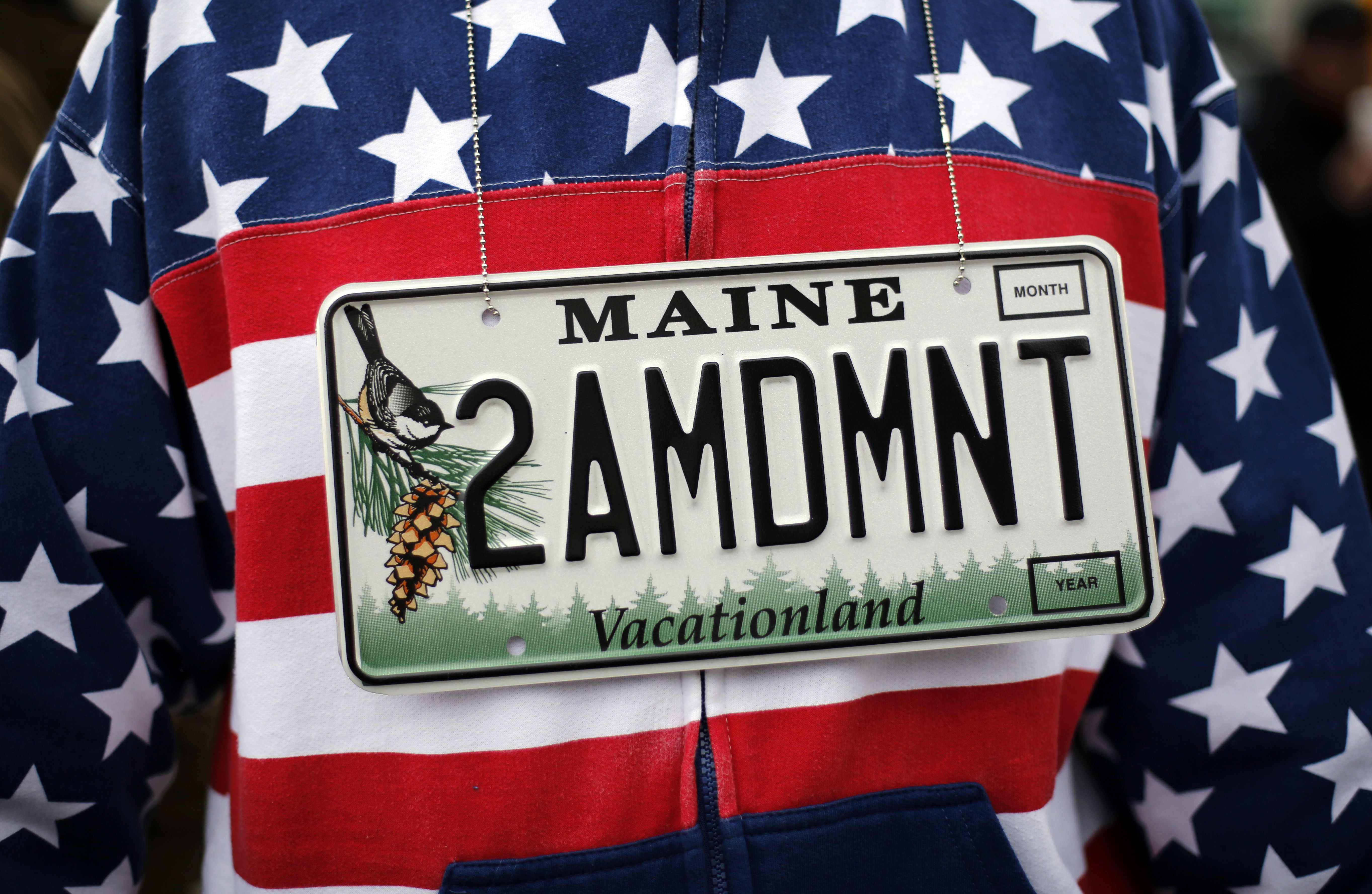July 18, 2017
When my neighbor Allen invited me over to butcher a pig, I took it as a gesture of rural camaraderie and accepted with the emotion appropriate to an immigrant trying to make new friends. I never imagined that the romantic experience of killing and preparing your own food alongside a stranger might degenerate into a horror story.
Allen lived tucked away in the forest of Maine, the northeasternmost state of the United States, where I moved four years ago. I got out of the car and, before knocking on his door, stopped to take a look at the objects he had placed on the patio table: a still life of knives, electric saws, pliers, wires, ropes, pulleys, wrenches, awls and files. Also, a hunting rifle and a 9mm handgun. Was all this firepower really required for what we planned to do?
I’d met Allen in a local soccer league and we maintained a brief conversation over email. He told me he was a woodcutter and one day I bought some firewood from him. Another day he told me that he raised pigs and invited me over to help him make use of the runt of his litter. Seemed like a perfectly natural thing to do. But that morning, standing beside that table fit for a psychopath, I realized that I knew nothing about this gringo.
Americans love firearms. They collect them, they exhibit them, they use them and, though many stand opposed to them, no divergent option currently exists to beat back the statistics. There is, on average, one gun per U.S. citizen, according to a tabulation done by the Washington Post, a fact that makes the United States the country with the most guns per capita on the planet—including countries, like Iraq and Syria, that are openly at war. Perhaps this omnipresence is why more than one hundred people are shot to death every day in Rambo’s homeland: from schoolchildren at the hands of their peers to immigrants riddled by xenophobe’s bullets.
Some shootings seem to be inspired by the intolerant rhetoric embraced by mainstream political leaders here. This concerns me. At the end of February 2017, a man named Adam Purinton shot two Indian engineers in a Kansas bar after shouting “get out of my country.” In the era of Facebook and Twitter, terror goes viral in real time. The news reached me in a restaurant in Maine which I had to promptly leave because I feared that perhaps it also contained a shooter who wanted to kill foreigners. I remembered the case a few weeks later, at Allen’s house, with the fear of a trapped animal. What if my neighbor was that kind of racist?
Allen came out to greet me accompanied by a friend of his, Mark. They both seemed to have been cut out of old paintings of daily life in Maine: white men, with green eyes and blonde beards spilling out onto plaid shirts. Mark, who was approximately the size of a grizzly bear, offered me some of his breakfast: beer and a hit of marijuana, which is legal in the state. I drank and smoked just a little bit, so that the effects wouldn’t heighten my paranoia. I remained alert, keeping my faithful sushi knife nearby.
Allen walked us to the pen. A little piglet, pudgy and pink, approached him with the docility of a dog. Her name was Dusty, Allen explained, because she liked to roll around in the dirt. He scratched her head for a few moments.
She is a sweetie, he said, his voice cracking with sadness.
He took the pistol and shot her twice between the eyes.
What’s the gun situation like in Lima? Allen asked me.
We were washing Dusty’s corpse in an old bathtub. Every so often Mark would pick up the rifle, point it toward a corner, and shoot. “Fucking rats,” he said, lamenting his poor marksmanship before returning to work.
What’s the gun situation like in Lima? How’s the traffic? What are the politics like? Every time gringos ask me about my city, I want to know what one of my fellow citizens would say. I try my best to be an honest ambassador.
You can get whatever you want on the black market, I said, but in general it’s illegal to have guns. Almost no one has them. As a society, we’re pretty naive.
I remember that I used that word, naive, but that I said it with pride. Maybe even relief. As though the lack of weaponry in Lima expressed a specific kind of well-being that I miss sometimes, here in the North.
Translated by Lucas Iberico Lozada

Cuando mi vecino Allen me invitó a su casa para destazar un cerdo, lo tomé como un gesto de camaradería rural y acepté con la emoción propia del inmigrante que intenta hacer nuevos amigos. Nunca pensé que la experiencia romántica de matar y procesar tu propia comida con un desconocido podía degenerar en una historia de horror.
Allen vivía en un recodo escondido del bosque de Maine, ese estado al noreste de los Estados Unidos, adonde me mudé hace cuatro años. Bajé del auto y, antes de tocar la puerta, me detuve a observar los objetos que él había ordenado sobre la mesa del patio: un bodegón de cuchillos, sierras eléctricas, tenazas, cables de corriente, sogas, poleas, alicates, punzones y alfileres. También una escopeta de caza y una pistola nueve milímetros. ¿Se necesitaba todo ese arsenal para lo que íbamos a hacer?
Había conocido a Allen en una liga de fútbol local y manteníamos una escueta comunicación por correo electrónico. Me dijo que era leñador y un día le compré un poco de madera. Otro día me contó que criaba cerdos y me convidó a su casa para ayudarlo a beneficiar al último de su camada. Todo parecía muy natural. Pero esa mañana, ante aquella mesa propia de un psicópata de película, sentí que en realidad no sabía nada de este gringo.
Los estadounidenses aman las armas de fuego, las coleccionan, las exhiben, las usan y, aunque muchos están en contra de ellas, ninguna opinión discrepante puede rebatir las estadísticas. Cada ciudadano tiene en promedio un arma de fuego, según un cálculo del diario Washington Post, lo que convierte a Estados Unidos en el país con más armas de ese tipo per cápita en el planeta, incluso por encima de países abiertamente en guerra como Iraq o Siria. Quizá por esta omnipresencia, según el Center for Disease Control and Prevention, más de cien personas mueren baleadas cada día en la tierra de Rambo: desde escolares a manos de compañeros hasta inmigrantes acribillados por pistoleros xenófobos.
Los discursos intolerantes de los líderes contemporáneos parecen inspirar algunas balaceras, y esto me atañe. A fines de febrero de 2017, un hombre llamado Adam Purinton acribilló en un bar de Kansas a dos ingenieros indios después de gritarles “fuera de mi país”. En la era de Facebook y Twitter, el terror se viraliza en tiempo real y vibra en tu celular. La noticia me alcanzó en un restaurante de Maine del que tuve que salir de prisa porque temía que quizá allí también hubiera un pistolero con ganas de matar extranjeros. Recordé el caso días después, en casa de Allen, con ese miedo animal de quien se siente atrapado. ¿Y si mi vecino era ese tipo de racista?
Allen salió a recibirme acompañado de un amigo suyo, Mark. Ambos parecían extraídos de las viejas pinturas sobre la vida rural en Maine: hombres blancos, de ojos verdes y con las barbas rubias cayéndoles sobre camisas a cuadros. Mark, que además era grande como un oso grizzly, me convidó su desayuno: una cerveza y un pito de marihuana, que es legal en el estado. Bebí y fumé con moderación para que los efectos no acrecentaran la paranoia, y me mantuve alerta, cerca de mi fiel cuchillo de sushi.
Allen nos llevó al corral. Una cerdita rechoncha y rosada se acercó hacia él con la docilidad de un perro. Se llamaba Dusty porque le gustaba revolcarse en la tierra. Allen le acarició la cabeza unos segundos.
-She is a sweetie -dijo con la voz quebrada por la pena.
Tomó la pistola y le disparó dos veces entre los ojos.
-¿Cómo es la situación de las armas en Lima? -me preguntó Allen.
Estábamos lavando el cuerpo de Dusty en una vieja bañera. Cada tanto Mark tomaba la escopeta, apuntaba a un rincón y disparaba. “Fucking rats”, decía lamentando su mala puntería, y luego volvía al trabajo.
¿Cómo es la situación de las armas en Lima? ¿Cómo es el tráfico? ¿Cómo es la política? Cada vez que los gringos me preguntan por mi ciudad, me encantaría ver qué responden mis paisanos. Hago mi mejor esfuerzo por ser un embajador honesto.
-Allá puedes conseguir lo que quieras en el mercado negro, pero en general es ilegal tener armas. Casi nadie las tiene. Somos una sociedad bastante ingenua.
Recuerdo que usé esa palabra, ingenua, pero lo hice con orgullo. Quizá con alivio. Como si la ausencia de armas en Lima expresara un tipo específico de bienestar que echo de menos acá en el Norte.
Marco Avilés, Maine, Butchery, Second Amendment, USA, Foreign Correspondence






